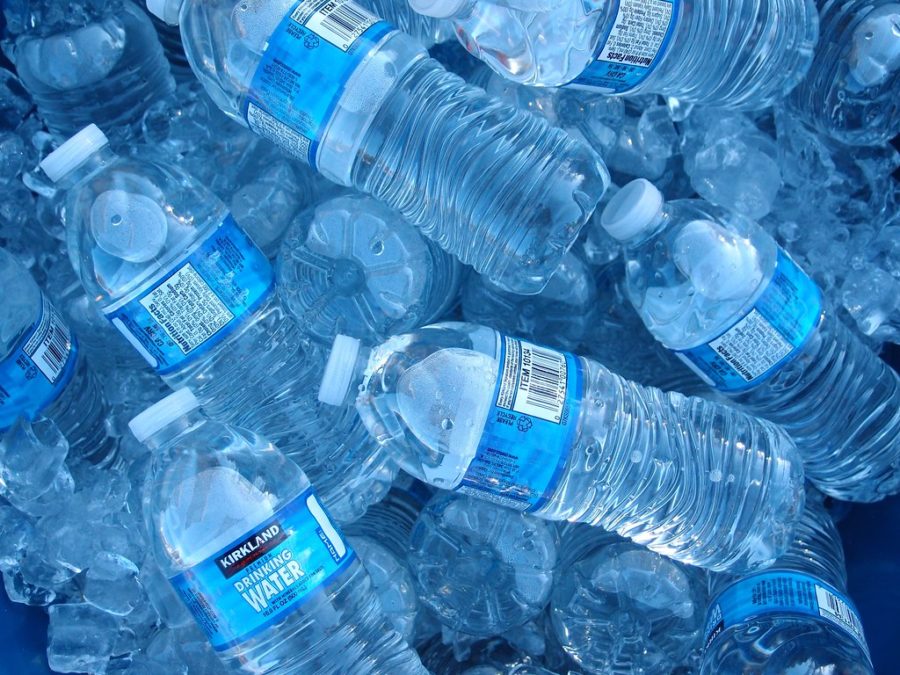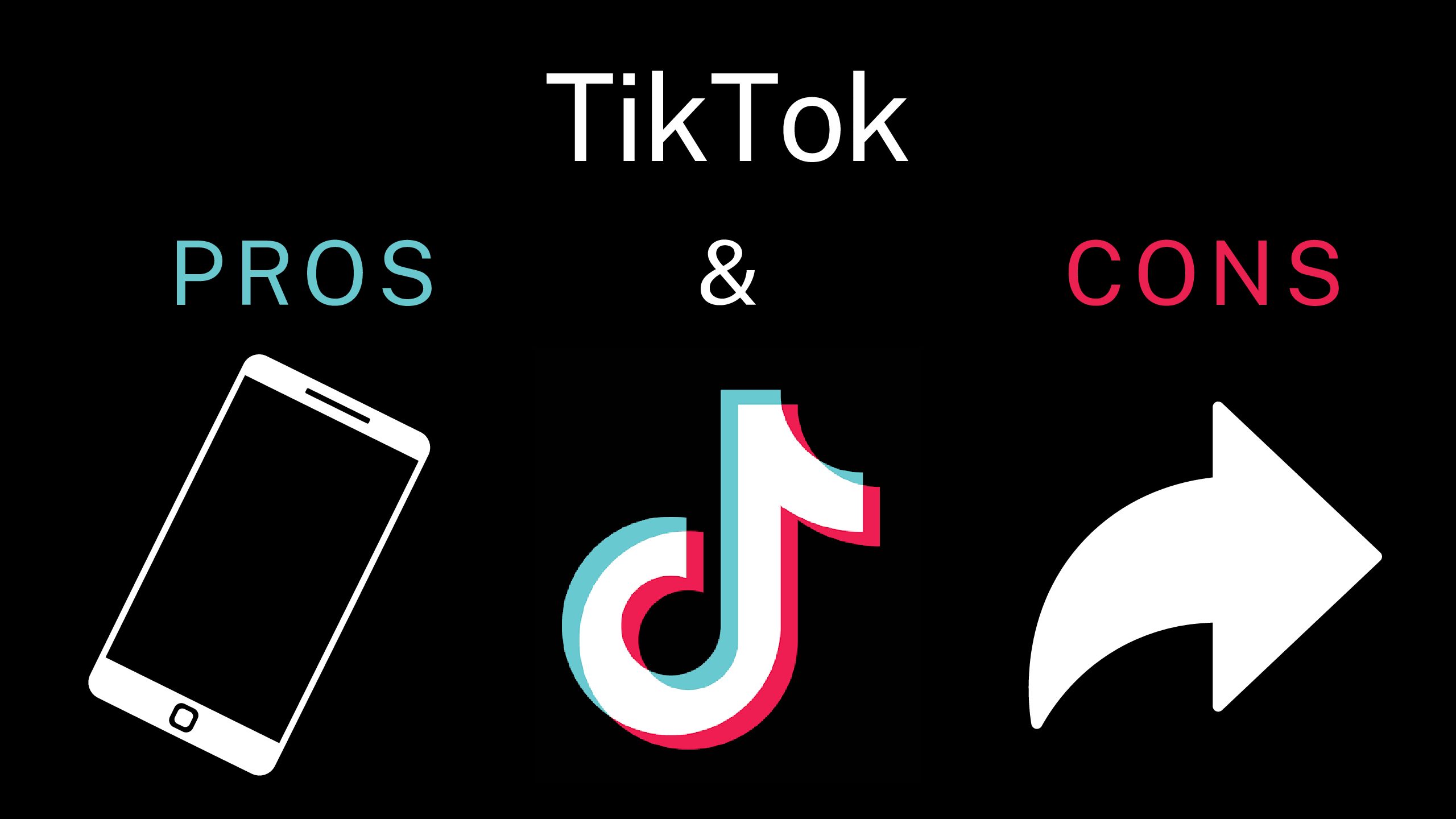Bottled water’s impact on the world
“Bottled water” by TheDigitel Myrtle Beach is licensed under
Plastic bottles are a popular source of water nowadays, with companies like Ice Mountain, Fiji Water, Nestle, and many grocery store brands like Kroger.
December 23, 2021
The banning of bottled water has been a debate for decades. Plastic bottles are a popular source of water nowadays, with companies like Ice Mountain, Fiji Water, Nestle, and many grocery store brands like Kroger. We all know by now that the Earth is very polluted, and many argue that a big reason why is because of bottled water.
Some think we need to get rid of plastic bottles and the damage they are causing the Earth outweighs the convenience of them. Others think there’s still more reasons to keep them around than to ban them.
For my own part, I think that plastic water bottles should be banned. Although there are great uses for them, the harm they are doing to the environment is not good, and there are many substitutes we can use for them.
How These Bottles Came to Be
Polyethylene terephthalate (PET) is the type of plastic used to make our water bottles. This material was perfect for the bottles because it was harmless to drink out of and cheap. Du Pont, a chemistry company, came out with the plastic while testing all the way back in 1941, according to National Geographic. It never really had a use until chemist Nathaniel Wyeth, also from Du Pont, designed the world’s very first PET water bottle in 1973.
Businessmen realized the potential these bottles had, and started their own companies, hoping to make money off of them. The companies Evian and Perrier both kicked off, followed by Aquafina in 1994, then Dansani in 1999. According to NPR, in the United States, almost 9 billion gallons of plastic water bottles were sold in 2008. Around the whole world, there were five times that amount. According to The Guardian, the amount of plastic water bottles bought worldwide went up to 300 billion from a decade ago, with over 480 billion plastic bottles of water in 2016.
These plastic water bottles have no doubt become very popular, and it’s not hard to see why. They’re easy to carry around, convenient, and very practical. Once you’re done with your water, you can just throw the bottle out, no need to carry it around with you like you’d have to with a reusable bottle.
The Harms They Create
However useful these bottles are to humans, they have certainly proved to not be good for the planet. If they aren’t recycled, it takes roughly 450 years for the plastic to decompose in a landfill, which is over ten times the amount of time they have even been around for. Dangerous chemicals can alo be leaked into our environment as they decompose.
The other common place un-recycled plastic goes is the ocean. In the Ocean Conservancy’s International Coastal Cleanup, the third most collected trash were plastic water bottles. According to Britannica, in 2015, 70% of bottled water weren’t recycled. Even so, only 7% of the recycled bottles (which were fewer than half) were made into new bottles in 2016, as stated by The Guardian.
Furthermore, a lot of money could be saved if we got rid of bottled water. Britannica states, “Mathematicians at Penn State University estimate that spending $20 on a reusable water bottle can save the average American up to $1,236 a year.”
In April of 2019, Time Magazine said, “the unsettling conclusion of a study published last year in Frontiers in Chemistry that analyzed samples taken from 259 bottled waters sold in several countries and found that 93% of them contained “microplastic” synthetic polymer particles.” Not only is the plastic bad for the environment, it also can be harmful to drink the water inside it.
Another arguable factor is if these bottles are even needed at all. Although they are loved so much, they’re expensive and not necessarily needed. Reusable bottles are a great option, they are cheap and not hard to take care of. And at this point in time, water fountains are fairly common. They can be found in just about every store.
With the pollution it’s causing, money it’s spending, and unhealthy water inside the bottle, is there really still a need for bottled water?
Despite the Damages
On the other side of this, there are a lot of companies that sell bottled water, and in turn, many jobs for many people. According to IBIS World, as of 2022, the number of employees working in the Bottled Water Production industry have reached 17,745. If these plastic water bottles are banned, it will play a part in the loss of employment of over seventeen thousand people.
Bottled water also provides a healthy choice. In a convenience store fridge full of heavily processed sodas and juices, water is the healthiest option. The CDC states, “the US obesity prevalence was 42.4% in 2017-2018.” Although the rates of obesity have only increased since bottled water became popular, taking the option away will only make it worse.
“People are choosing beverages with fewer calories, so they are shifting away from less healthy packaged drinks and are choosing the healthiest option – bottled water,” said IBWA’s vice president of communications, Jill Culora.
Plastic water bottles have done a great deal of damage to the environment, but banning them may just shift the plastic usage to other drinks. According to the Beverage Marketing Corporation in May of 2018, carbonated soft drink plastic containers make up 13.3% of all drink packaging in landfills in the US, aluminum cans make up 7.9%, and plastic water bottles actually only make up 3.3%.
If we wanted to start reducing plastic use, bottled water might not be the best choice to start with considering the jobs it provides, the healthy option it brings, and the amount of damage it causes to the environment compared to other plastics and beverages.
To Ban or Not to Ban, That is the Question
San Francisco was the first city in the United States to ban the sale of bottled water, in hopes to reduce plastic waste and pollution. In October of 2021, “California Gov. Gavin Newsom signed a bill that bans use of those small bottles by hotels of more than 50 rooms beginning in 2023, and all hotels starting the next year,” the LA Times reported.
More and more awareness has been spread around plastic water bottles. However, with plenty of reasons to ban them but also plenty not to, it’s been hard to come up with a solution. Bottled water is bad for the environment, expensive, and can be harmful to drink. On the other hand, it provides jobs, is a healthy choice, and isn’t even the worst type of plastic pollution there is. Taking all these factors into account, should plastic water bottles be banned or not?
Personally, I think the cons of bottled water outweigh the pros. They’re part of the reason why the environment is so polluted, can be dangerous to drink, pretty expensive, and have so many other great alternatives.
Yes, they do provide a healthy choice, but again, there are still other options, such as natural tea. Even if someone was dying of thirst, they could simply use a water fountain, which as I mentioned before, are everywhere nowadays, and probably more accessible than bottled water. And yes again, they also provide jobs for a good amount of people and banning may just shift plastic consumption to other drinks. However, our planet is slowly being consumed by trash and plastic being thrown everywhere, and we need to start someplace to change that.
Even though bottled water isn’t the worst type of cause for pollution, they are the easiest way to start making a difference.







